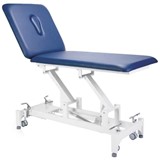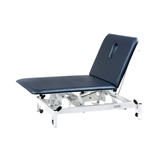Sydney-based surgeon Dr. George Fielding learned this the hard way. “It is difficult for a patient to take health advice from a physician if he or she is unhealthy themselves,” he explained. “It is even more challenging to give advice about weight when we can't manage our own," he said. Once Dr. Fielding got his own weight under control, patient confidence increased dramatically.
A recent Australian Health Survey published by the Australian Bureau of Statistics shows that many doctors are failing and facing the same credibility issues because of their own poor health. Surveys demonstrate that patients don’t trust overweight doctors who are telling patients to treat their own obesity.
Australian Health Plummets with Ballooning Waistlines
The effects of being overweight and/or obese are widely recognized as one of Australia’s leading health concerns, and it doesn’t discriminate over age and socioeconomic class. Add to that the fact that almost 60 percent of Australian doctors are overweight or obese, according to the latest data from the Australian Health Survey, and it’s clear that physicians are increasingly poor role models for this growing demographic of patients.
If you ARE overweight or recently lost weight, helping your patients understand what you did with diet, exercise and sleep can help them slim down to a healthier weight. Or, if you are already in optimal fitness, you should already be better-equipped to let patients know the many strategies for keeping their weight in check.
Deficiency in Nutrition-Based Training
Studies in Europe, the United States and Australian show that nutrition is often overlooked in everyday health care, despite the definitive correspondence between diet and patient health. Physicians would do well to learn more about nutritional health than most picked up during university training. Likewise, medical academies should increase the time spent on nutrition-based health. According to the Journal of the American Osteopathic Association, only 12 percent of doctors have heard of dietary reference intakes, which are a valuable, evidence-based set of guidelines used as a tool for healthy weight management and organ health.
Medical science is so treatment-based that even the topic at medical schools is anemic in their preventative teachings, including the knowledge of proper, patient-specific nutritional plans.
Proven Patient Psychology Strategies and Best Practice Points
The Australian Medical Association published a position paper arguing that overweight patients are shown to benefit from targeted interventions, occasional pharmacological treatment, bariatric surgery ongoing management, and ongoing education about the many chronic diseases that obesity exposes them to, including: type 2 diabetes, metabolic disorder, kidney failure, fatty liver, cardiovascular events, respiratory issues like apnea and even some cancers.
Clinical guidance from the Australian Department of Health recommends 5 overarching strategies for patient intervention in achieving a healthy weight:
- Ask
- Assess
- Advise
- Assist
- Arrange
More specifically, the National Health and Medical Research Council shows that the body of evidence for the following are trusted best practices for patient success:
- Ask patients how willing they are to commit to behavioural and lifestyle changes to improve their health.
- Assess and monitor comorbidities, family history, environmental factors, diet, BMI and other weight and measurement factors like waist circumference.
- Advise patients that in most cases, even modest weight loss through caloric restriction and adequate exercise can greatly reduce cardiovascular risk.
- Assist in local programs that may help patients lose weight. Tailor the approach to the individual.
- Arrange for a self-management approach and provide ongoing progress monitoring
The AMA also recommends special attention be given to vulnerable groups like Aboriginal and Torres Strait Islanders, and those from low-income families.
Consider prescribing weight management techniques that not all patients consider, like modified diet, exercise, adequate sleep, less screen time, more time outdoors, less alcohol, fewer stimulants like caffeine and energy drinks as well as less alcohol and tobacco.
The fight against obesity has been woefully underserved and poorly addressed at all levels. Doctors can do their part, leading by personal example with holistic evidence-based solutions.







-160x160-state_article-rel-cat.png)








-160x160-state_article-rel-cat.png)






